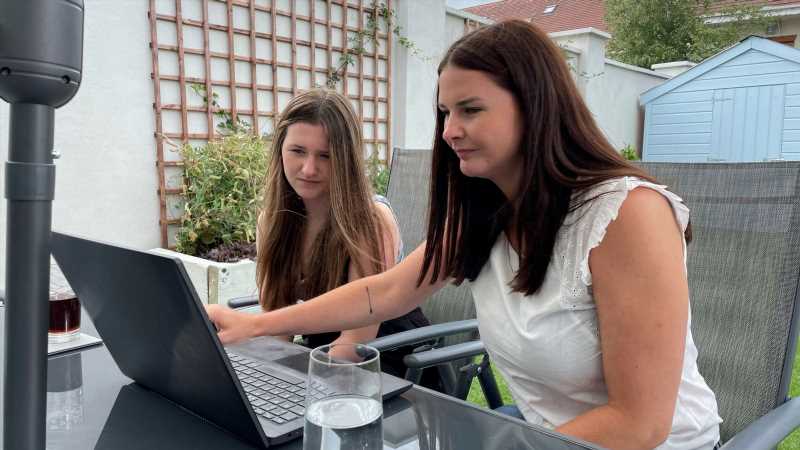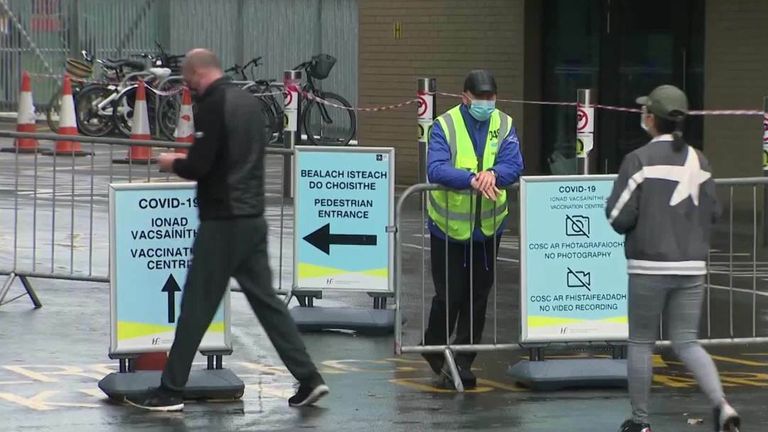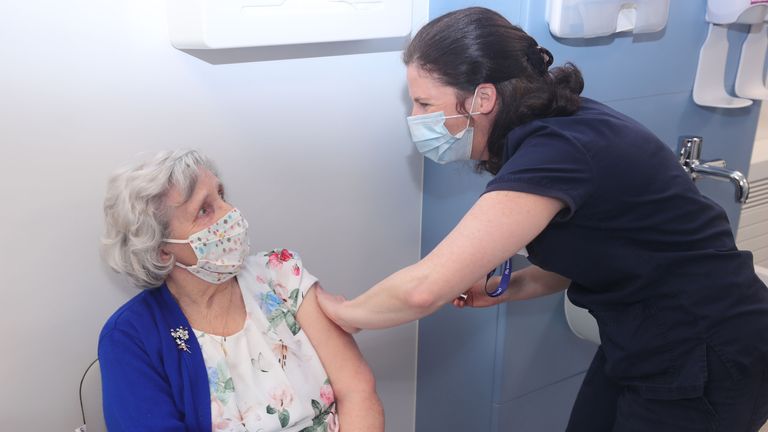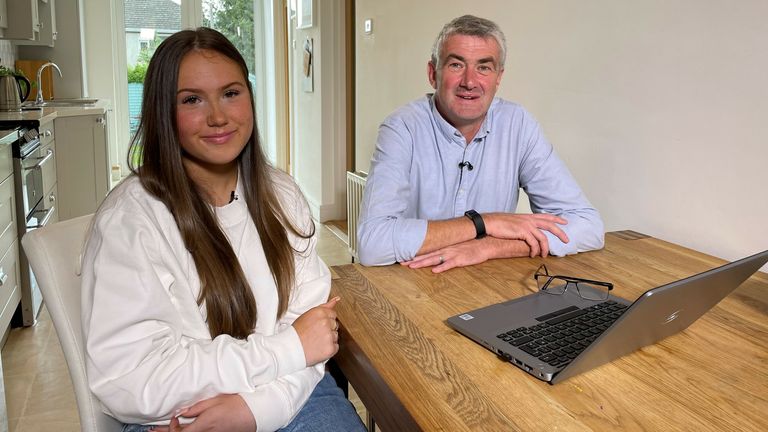Thousands of young Irish teenagers and children aged between 12 and 15 will start to get the COVID-19 vaccine this weekend in a major extension of the country’s vaccination programme.
Around 280,000 children in this age cohort will be offered either the Pfizer or Moderna vaccine, with Ireland‘s government expecting all second doses to be administered by the end of September.
Eva Synnott, 12, told Sky News: “I’m scared of the actual needle, I’m not scared of the vaccine. I know it’s safe, I just don’t like the idea of needles.”
Eva, along with her mother Sue and other family members, contracted COVID-19 in April. Now fully recovered, she said she wants to get the vaccine “to prevent my grandparents from getting sick”.
“I’d also like to go on holidays very soon, and to keep other people safe,” Eva added.
Eva registered when the portal opened on Thursday and has already received an appointment for her first dose of the Pfizer vaccine on Sunday.
The consent of a parent or guardian is needed, but Sue Synnott said registering was Eva’s decision.
“I had some concerns about the side effects of the vaccine, but I think the pros outweigh the cons”, she said.
“I want her to be protected because she needs to start living her life and be able to do things properly again, and the more people who are vaccinated, the better.
“I think it’s down to her and we had a little chat about it and she decided she wanted to get it done.”
Around 65,000 children registered in the first 24 hours, and the health service expects take-up to be high.
Ireland’s vaccination programme has accelerated to be among the most successful in Europe, with more than 80% of the adult population now fully vaccinated.
Take-up has been as high as 99% in some age brackets, according to the Health Service Executive (HSE).
The UK has taken a different approach, with vaccinations only offered to 12 to 15-year-olds with certain medical conditions, or to those who live with vulnerable family members.
Some experts are unconvinced of the necessity of Ireland’s move.
Professor Robert Read, professor of infectious diseases at the University of Southampton and a member of the UK Joint Committee for Vaccines and Immunisation (JCVI), told Sky News: “Our programme differs in the sense that we have not yet advised vaccination of the healthy 12 to 15-year-olds.
“We have advised vaccination of the healthy 16/17-year-olds, and we’ve also advised vaccination of certain groups of children aged 12 to 15 who have certain conditions that possibly make them more susceptible to COVID-19.
“So really, our programme only differs from the Republic of Ireland in the sense of they’re vaccinating healthy 12 to 15-year-olds, and we’re not advising that yet – but I should say that we’re keeping a very close eye on data.”
Prof Read doubts vaccinating children on a mass scale will significantly decrease transmission of COVID-19 to adults.
“Whereas with certain infectious diseases children are a reservoir of infection and they transmit the infection to adults, in this case for some curious reason it appears to be the other way around,” he said.
“Adults are more easily infected than children and transmit the infection to their children, so it’s fallacious to think that by vaccinating children that will have an impact on infections at a significant scale in adults.”
Irish experts have advised the government that although most 12 to 15-year-olds would only experience very mild symptoms, there remains a risk of hospitalisation and long COVID.
The HSE has said that this is likely to be the last age cohort in Ireland vaccination rollout.
Parents like Sean Breathnach, from Dublin, have been urged to encourage their children to consider the vaccine.
He said his 15-year-old daughter Blanaid did not need much persuading. Like Eva, Blanaid told us that many of her friends are signing up, and a lot of her 16-year-old friends had already received their first dose.
“Obviously you have just got to trust the scientists, they know better than I would,” she said.
Her father has talked her through the potential side effects of the mRna vaccines, but Blanaid is undeterred.
“No-one’s nervous about what’s in the vaccine – just the needle,” she added.
Source: Read Full Article



